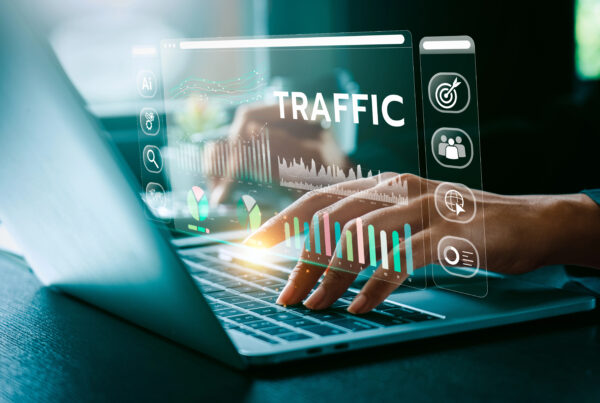It’s 2021, which means every individual and business is competing for top visibility and brand exposure on the internet. This includes your local grocery store, your doctor’s office, schools, restaurants, social media influencers, and even us at Logical Media Group! Every person and organization wants to be seen and heard and most importantly, outsmart the competition.
With so many digital marketing strategies to learn and implement, it’s important to stay on top of best practices and understand what will work best for you. Optimizing for local search is just one of the many ways to stand out.
What is Local SEO?
Local search engine optimization (SEO) is just like regular SEO in that its purpose is to increase the visibility of your website, but what makes it different is the ability to focus on your business’ local audience. If you’re optimizing for local search results, you’re basically letting Google know that you’d like to be found particularly by those who live in your community. For brick and mortar locations, implementing a local SEO strategy, is a necessity.
Here’s an example: If you’re a new, family-owned coffee shop located in a neighborhood that gets a lot of foot traffic, try optimizing for local search within a two-mile radius of your shop! Those who live and work within that radius will be your primary audience and the perfect starting point for a local SEO campaign!
Now it’s time to get started. See our best practices for local SEO, below!
Do’s & Don’ts When Optimizing for Local Search
Setting up local search costs time and money so it is important to follow local search best practices to make the most out of your capabilities. Follow our list of do’s and don’ts to ensure a smooth and successful local search campaign:
DO claim your ‘Google My Business’ page
A ‘Google My Business’ page is a surefire way to claim credibility. When users search for your business, they will find your physical address, contact information, website information, customer reviews, and more. If Google verifies your business and sees you are interacting with customers on this page, you’re off to a great start.
DO ensure your website is mobile-friendly
This is a basic best practice for local SEO and just SEO in general. Make it easy for your local community to find you and get the information they’re looking for by creating a mobile-friendly website.
DO optimize internal links
Again, this is just a general SEO best practice, but it does help improve your local search results. When internal linking is structured properly, Google recognizes your page to have authority and credibility. It also makes it easier for users to navigate your website, which will encourage someone walking by your business to stop in rather than keep on walking!
DO optimize URLs, title tags, meta descriptions, and website content
To adhere to local search best practices, this is an effective step to take. Include original and purposeful content (like a blog post highlighting an event your business is hosting in the local community!) with high-volume, geo-targeted keywords.
Check out How to Boost Blog Performance & SEO with Topical Authority.
DO understand your audience
The most important part of any SEO practice is to understand your target audience. Who lives in your community? What are their ages? What do they do for a living? Consider this an SEO audit of sorts, where you conduct some external research and then apply it to your local SEO strategy.
DO provide consistent messaging/linking across social media channels
By having a strong social media presence, your local search results will only be more successful. Your social media channels should act as a credible, content-filled extension of your website that also contain accurate contact information and direct linking!
DON’T ‘keyword stuff’ location copy
Natural use of location copy on your website, should be all you need to get started. If you’re stuffing pages aside from your contact page with repetitive and unnecessary location words (city name, zip codes, etc.), Google will actually flag your site and penalize your search performance.
DON’T duplicate content
This goes hand-in-hand with our last tip. For example, if your business has multiple locations, do not just copy and paste the exact same content on each location page. Make each location stand out on its own and offer compelling copy so Google recognizes its own specific credibility.
DON’T mis-categorize your business
For example: If you are a candle making class shop, categorize your business as such. Your primary category should be EXACTLY what your business is. By categorizing your shop as a ‘candle store’, you’ll be misinforming users who think they’ll be able to come to your shop to buy a candle instead of taking a class to make a candle.
DON’T set up a ‘Google My Business’ page if you do not have a physical location
This is a common mistake made by businesses when optimizing for local search. If you are a completely-remote/virtual business or simply do not have a valid office location where employees come to work, you CANNOT set up a ‘Google My Business’ page. In fact, Google has specific guidelines for this.
If you need additional help with your local search strategy, seek out a credible digital marketing agency to guide you, like Logical Media Group! Ask these 10 Questions Before Hiring an SEO Expert so you can understand exactly how they’ll be of service and start optimizing your local search results today!








